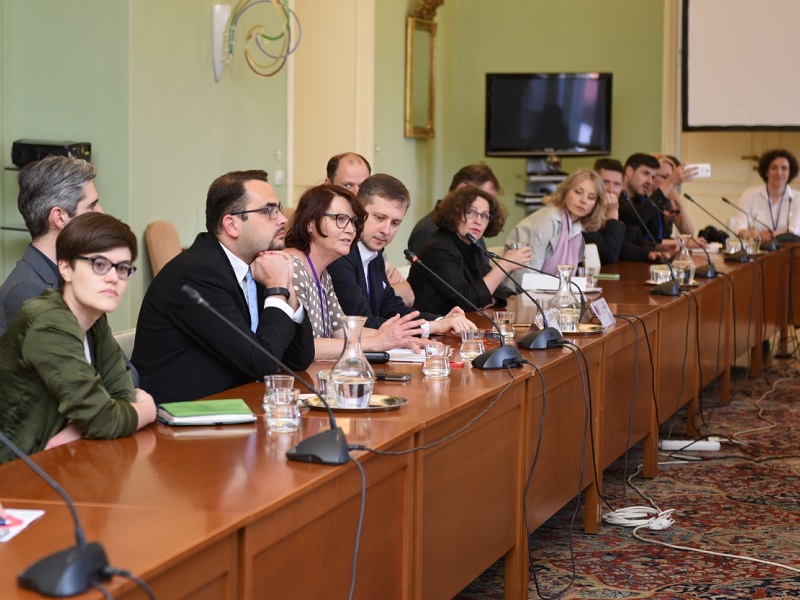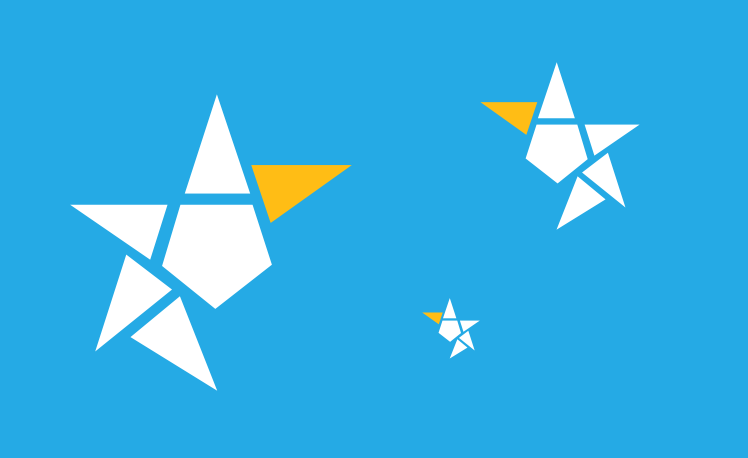
6 tips for successful grant writing
Evaluate the amount of work required for grant application writing before you start
First of all, you already need to have a fully-formed concept and goal that requires funding.
- You should start with the key questions that you should ask yourself as a project manager: what problem does my project solve, to whom does it address and why is it important to implement it? I would not advise to approach such issues formally. Firstly, it will discipline you and develop project thinking. And secondly, your belief in a project and understanding its importance will be noticed in your proposal by the committee, - says Natalya Revko, project manager in the field of culture.
Also remember that applications for grants and proposals usually require a big amount of written material. Some foundations will require applicants to submit a motivation. Some grant proposals even require numerous letters of support from stakeholders and local organizations.
- If you saw a competition, opened a description and requirements of the application and determined that you have enough hours / days to prepare, feel free to add 50-70% of time. The worst solution is to start preparing an application a couple of days before the deadline. Some international programs need a several months of work on the application. Applicants often prepare supporting documents in the last turn. Definitely do not leave this in the end, - says Irina Prokofieva, program director of the Ukrainian Institute.

Irina Prokofieva, program director of the Ukrainian Institute
Do not write an application alone
Irina Prokofieva gives a piece of advice
The key task of each applicant is to write the application clearly and concretely as possible to omit additional questions and a feeling of lack of information. experts evaluating applications (especially in international programs) may know nothing about you, your project or organization. And it means that your application for them is the only source of information for making decisions. On the other hand, it is also difficult for those experts who know your organization to understand your experience and expertise but cannot evaluate the application accordingly because there is no enough information.
So your goal is to shape the goals, tasks, concept, methodology, mission and results. And your goal is to articulate goals, objectives, concept, methodology, mission and results. If we write all this alone, we may not notice that we used specific terminology, did not indicate enough context, and did not describe the arguments transparently.
After all, what seems to us obvious may raise many questions to another person.
That is why you should fill in the application with colleagues or give it to your family and friends to look through it.
Find which projects this organization has financed before
If you find a list of projects that have previously won a grant, you can ask their organizers to share their successful experience in writing an application, so that you will not miss any important details.
Do not be afraid to ask the donor personally if you do not understand something
With the help of Calling, writing, or personally meeting with the donor you can discuss the relevance of your ideas and priorities of the grant-giving organisation. A brief discussion of your proposal is a good reason to establish a contact, but it’s a bad idea to contact the grant officer just to make an impression. Many foundations ask applicants not to contact them, so always check first before moving forward.
If additional information about the grant may be useful for your writing process, but you hesitate to ask, remember that making contacts on a personal level can have some very useful advantages:
If an employee of the grant program thinks that your ideas are well for a grant, you have made an unforgettable impression and increased your chances for success.
If the grant program officer does not think that your planssuit the grant, you have just saved your organization time and effort.
Despite the way you contact the organization, remember that you communicate with the same people as you, with professionals who expect for effective communication, respect and ethics, - says Irina Prokofieva.
- I would also advise attending forums, workshops and festivals, where you can find people from the funds. You can better understand which projects are preferred by the funder, as well as ask questions directly. Now such events are becoming more and more popular in Ukraine, so you should not miss them. There is another type of cooperation when projects are supported support without an open-call announcement, but it means a high level of trust in the organization based on reputation, previous positive experience of cooperation and high-quality communication during and after the project, - says Natalia Revko.

Natalya Revko, project manager in the field of culture
Pay attention to technical criteria
From my experience in evaluating applications within the framework of grant competitions, I can confidently say: the most common mistakes are related to the technical requirements of the donor,” says Irina Prokofieva.
Usually technical criteria are:
- deadline for sending the application,
- topic of the letter,·
- a list of documents to be submitted by the applicant,·
- the volume of text in certain blocks and questions,·
- terms of the project,·
- conditions for co-financing,·
- geography or thematic area of the project,
- compliance with the priorities of the grant competition, etc
Irina believes that the participants don't often pay attention to this because of carelessness, due to lack of experience.
- I saw a lot of projects that had a wonderful, important idea, experienced team and the necessary experience to realize the really necessary initiative, but they did not go to the next stage of the competition precisely because of the discrepancy with the technical criteria. It is important that all serious grant programs abide the technical requirements very carefully, because itcreates equal conditions and transparent rules for everyone, ”says the expert.
Irina advises participants to read carefully all the rules, priorities and technical criteria of the competition.
- For example, Ikept all the rules and requirements for myself, printed out and highlighted all the important points with a marker. And after writing the application and preparing the accompanying materials, I went through all the allocated blocks and noted whether my application met all the requirements, ”the expert says.
Design a realistic project – or a portion of a larger project – that can be accomplished by the end of the grant period
Your large-scale ideas and fantasies are good of course, but if the grantor sees that there are too many of them, it can have the disadvantage
Your story should be the same both in the budget and in the description
Too many times the authors create a beautiful story, and do not think about the budget. This is a big mistake! The project budget is another opportunity to tell your story and demonstrate your credibility. Many funders tell us that the budget is the first thing they pay attention to. Everything in your budget should be reflected in the narrative part. The last thing you need is a budget that has more questions than answers.
Do not wait until the last minute!
This may jeopardize the quality of your application and, in the worst case, jeopardize your reputation.
7 tips to increase the chances of a grant application from Irina Prokofieva and Natalia Revko
- Clearly identify the problem your project has to solve. To do this, I recommend using the "Problem Tree" and "Decision Tree" tools.
- Pay attention to the formulation of the goals, objectives and results of the project. I recommend using the Project Logframe format. Clearly indicate how you are going to measure your results, how you will understand if you have achieved success at the completion of the project.
- Think over your communication strategy. If necessary, attract colleagues / specialists to help you to work out this application block as professionally as possible.
- Do not make a project for grant. Experts evaluating applications see the artificiality of such applications from the first lines of the text. Only a lively, relevant idea will have a high chance to win.
- Be mindful of the details. The donor will appreciate your compliance with all requirements, adequate formatting of the text, indication of all information, accuracy of supporting documents, realistic and detailed budget. Again, the user’s applications which were made quickly don’t make a good impression.
- Look for arguments why your project needs to be implemented: it can be statistics, expert comments and research on the problem your initiative is aimed at. In order to write a really strong application, you will need time to search and analyze such information. I would advise you to monitor studies and reports that are published on the topic of your projects and keep key quotes. This will not only contribute to your professional development, but also save time when creating an application.
- Choose partners carefully.. It’s good if you already had previous experience of cooperation. Also consider whether you will cooperate even after the implementation of the initiative; if your partner is interested in the sustainability of the project. This question is key for the project and for the success of your application.




